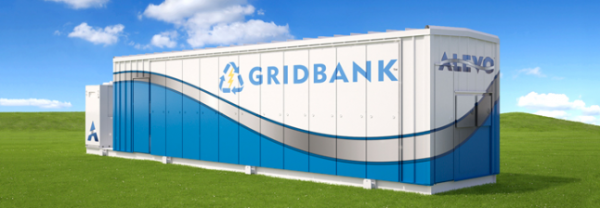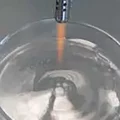Two US subsidiaries of Alevo, the Swiss-based grid-scale lithium-ion energy storage group, have filed for bankruptcy as a result of insufficient finance and production challenges.
Alevo USA Inc., and Alevo Manufacturing Inc., filed chapter 11 petitions on 18 August in the US Bankruptcy Court for the Middle District of North Carolina.
Chief financial officer Peter Heintzelman, who was named as CFO of the Alevo group in January, said in an online statement: “This decision was driven by the formidable challenges of bringing a new technology into commercial production and lacking the financial wherewithal to continue on through repeated manufacturing delays.”
Heintzelman said: It is a sad day for our dedicated employees and partners, as well as for the promise of Alevo’s technology.” Both US companies hope to “achieve an orderly liquidation of their assets and maximise value to pay their creditors”, the statement added.
According to local media, at least 200 employees have been laid off.
Heintzelman did not respond to BBB’s request for comment on whether the group’s international operations will be affected by the US decision. BBB’s calls to Alevo’s offices in Switzerland went unanswered.
According to Alevo, the group has nine subsidiaries with “established operations in the Americas, Europe and Asia”.
The situation in the US is a far cry from 2014, when Alevo invited hundreds of guests to see how it was ‘redefining’ energy at the newly-acquired former Philip Morris cigarette plant in Concorda, North Carolina, with the launch of its ‘GridBank’ box of lithium-ion battery modules.
Fired-up by the backing of anonymous Swiss investors, Alevo said then the initial capacity of the plant would be 12,000 cells/two GridBanks per day, with a business plan to churn out 200,000 cells/two GridBanks per hour within three years.
Then CEO Jostein Eikeland, a Norwegian internet entrepreneur, said the group had taken a novel inorganic electrolyte made in Switzerland and made lithium-ion phosphate cells with it. Inorganic electrolyte was said to be desirable because it was inherently safer than organic electrolytes and reduced performance degradation.
Alevo claimed its cells had achieved an impressive 43,500 cycles in the lab at 100% discharge. Orginally made by Fortu Powercell, a German battery research company Alevo fully acquired in 2013, the cells had a stable power rate but suffered from a 50% drop capacity fade after 10,000 cycles. Less impressive was the energy density, which BBB noted then was a measly 41.28Wh/kg, less than one-fifth, for example, of the 18650 cells in a Tesla S.
Last February, North Carolina governor Roy Cooper praised Alevo’s plan to add more than 200 jobs in Concord in return for $2.6 million in tax incentives over 12 years.
However, a spokesperson for the North Carolina Department of Commerce told BBB no state incentive funds had been paid out because job creation and investment targets had yet to be met. “As Alevo’s grant was only announced in February, the company had not yet reached their first-year reporting milestone.”
The spokesperson added: “We were disappointed to hear the news of Alevo’s bankruptcy and the impact on its employees, but North Carolina features a vibrant energy services sector and we are optimistic we’ll see long-term growth and opportunities in this industry.”












